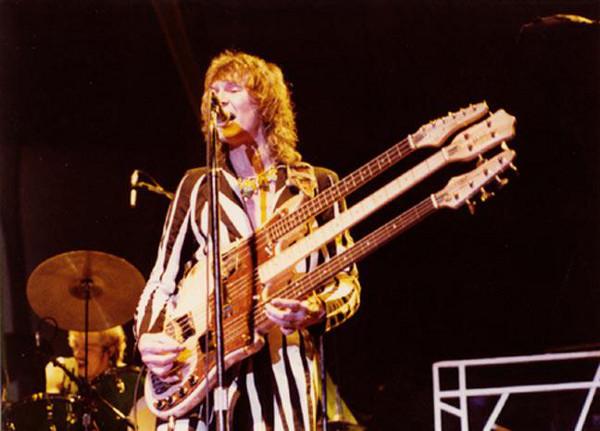Remembering Yes Co-Founder Chris Squire

Jon Davison called him “the Jimi Hendrix of the Bass Guitar.” Perfect. It had been years since I listened to Fragile but on a recent cross-country road trip I hit play and reveled in this remarkable work, struck once again by the complex, driving bass lines that defined the sound of Yes. Chris Squire was unique and is irreplaceable. I can’t imagine the band—in any form—going on without him.
Yes fan or not, find time to sit down and listen to Fragile as a complete work, from start to finish, on a good system. Play it loud. Be inspired. R.I.P, Chris.
Squire spoke with S&V music editor Mike Mettler in March 2014 about the music he listened to growing up in a London suburb and how his father made his own gear. “My dad had a pretty extensive record collection of American jazz artists like Ella Fitzgerald and Lena Horne,” Squire recounted. "And he actually built our home hi-fi system. We listened to those records on it, and they were pretty good. I often went and hung out in the room where this marvelous thing he built was. It had a woofer and a tweeter, and it was all pretty hi-fi. He was always in that room. Dad was very keen on reading all the electronics books. He was ahead of his time, actually. He built his own TV receiver to receive one of the two channels we had. He used to buy this magazine called Wireless World, basically predicting the coming of computers, and stuff like that. He was very ahead with all of that thinking."
Bandmates remember Chris…
Jon Anderson, Yes cofounder: “We met at a certain time when music was very open, and I feel blessed to have created some wonderful, adventurous, music with him.”
Geoffrey Downes: “His thunderous bass rig with the sub Taurus pedals rattling the stages was legendary— the ‘Wall of Doom’ as it was known housing some 30 speakers dominating an entire side of the stage. He was one of the few bassists who had the audacity to pick up a triple-necked instrument without the slightest hint of irony, and, probably the only one who could actually play the bloody thing!”
Rick Wakeman: “Chris took the art of making a bass guitar into a lead instrument to another stratosphere and coupled with his showmanship and concern for every single note he played, made him something special…. Chris’s passing, truly marks the end of an era.”
Bill Bruford: “Chris was… one of the twin rocks upon which Yes was founded and, I believe, the only member to have been present and correct, Rickenbacker at the ready, on every tour… His lines were important; counter-melodic structural components that you were as likely to go away humming as the top line melody… An individualist in an age when it was possible to establish individuality, Chris fearlessly staked out a whole protectorate of bass playing in which he was lord and master.”
Steve Howe: “He was a one-off, larger than life human being, who brought a serious amount to everything he was part of.”
Trevor Rabin: “An era is over. Music has lost a one of a kind…”
Share your own tribute and read more at YesWorld.
























































